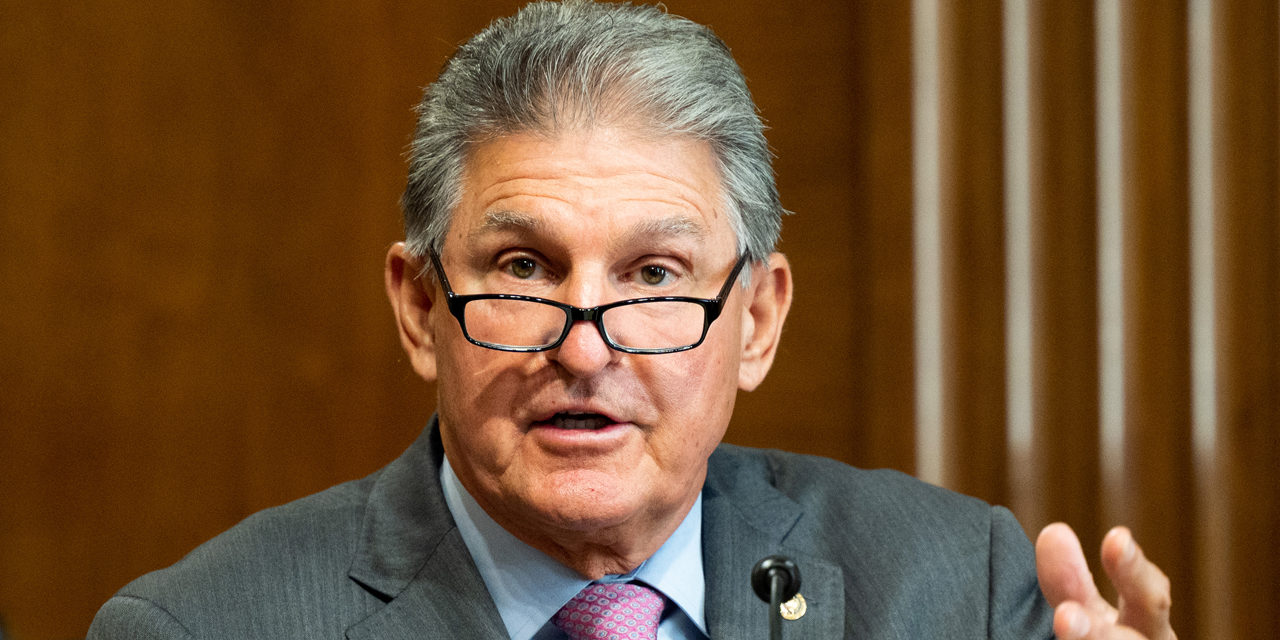UPDATE: As the Democrats look poised to pick up two additional Senate seats, tying the upper chamber in a 50-50 split, Senator Joe Manchin’s claim in November that he will act as a stopgap to Democrat ambitions will now be put to the test.
Senator Joe Manchin, D-W.Va., recently told Fox News anchor Bret Baier that if the Democrats win control of the Senate, they cannot count on his vote on issues like court-packing or ending the filibuster. It’s a relief to Republicans and conservatives, after liberal threats to upend the system in response to the administration of Donald Trump and some of his policies.
There are two runoff elections in Georgia that may determine the future of the Senate and potentially give Democrats a majority over both chambers and thus control over both the legislative and executive branches of the government. It would give the progressives within the party carte blanche to pass radical pieces of legislation and pack the court. However, Joe Manchin, a conservative Democrat representing West Virginia, refuses to jump on that bandwagon.
“Let me be clear: I will not vote to pack the courts and I will not vote to end the filibuster,” Manchin recently tweeted with a clip of his interview with Baier. “The U.S. Senate is the most deliberative body in the world. It was made so that we work together in a bipartisan way. If you get rid of the filibuster, there’s no reason to have a Senate.”
Ilhan Omar, one of the most radical progressives within the Democrat party, wrote on Twitter in response to Manchin, “Stop worrying about progressives, this might be the reason why we don’t win in the Senate races in Georgia. Good grief.”
But those who value democratic process should be concerned about some of the things that some of the Democrats have threatened to do in recent months, like ending the filibuster and court-packing.
Both parties have floated the idea of ending the filibuster, which is often referred to as the “nuclear option.” A filibuster, a Dutch term that originally meant “pirate,” is an “informal term for any attempt to block or delay Senate action on a bill or other matter by debating it at length, by offering numerous procedural motions, or by any other delaying or obstructing actions.” Removing it would leave the minority party with few or no options to block legislation.
Senator Harry Reid, who retired from his Nevada seat in 2017, voted to use the “nuclear option” and end filibusters for judicial appointments. Due to this change in procedure, a simple majority is all that is needed for the Senate to appoint a new judge or justice. While it worked swell for the Democrats when it came to filling the D.C. Circuit vacancies, when Republicans took control of the Senate in 2014, they used the same authority to thwart President Barack Obama and approve three justices to the Supreme Court and judges across the country.
If the Democrats win the Senate after the runoff elections in Georgia, they will have the authority to institute a variety of radical changes in policies and judicial appointments, potentially weaponizing the courts for the liberal and progressive agenda by packing it with like-minded judges and justices.
The court has sat comfortably with nine Justices since 1869, but, as The New Yorker points out, the number is “not constitutionally fixed, and history has shown that it is Congress’s prerogative, subject to the President’s veto, to add to or subtract from the seats on the Court.”
There’s an old saying, just because you can doesn’t mean you should.
Democrats should take that to heart, and Manchin believes that he can stand in the way of such blatant attempts to undermine the constitutional foundation of the country designed by our Founding Fathers.
In his interview with Baier, Manchin said, “I want to rest those fears for you right now, because when they talk about packing the courts or ending the filibuster, I will not vote to do that. I will not vote to pack the courts or end the filibuster. This Senate was made to work together in a bipartisan way. And once you start breaking down those barriers, then you lose every reason that we are the institution that we are, the most deliberate body. I want to lay those fears to rest, that that won’t happen. I won’t be the 50th Democrat voting to end the filibuster or stack the court.”
It’s comforting to know that there is at least one moderate Democrat in the party, but as the progressives and radicals continue to gain influence it will be more difficult to keep the liberal party from embracing its most extreme elements.
Photo from Michael Brochstein/REUTERS






